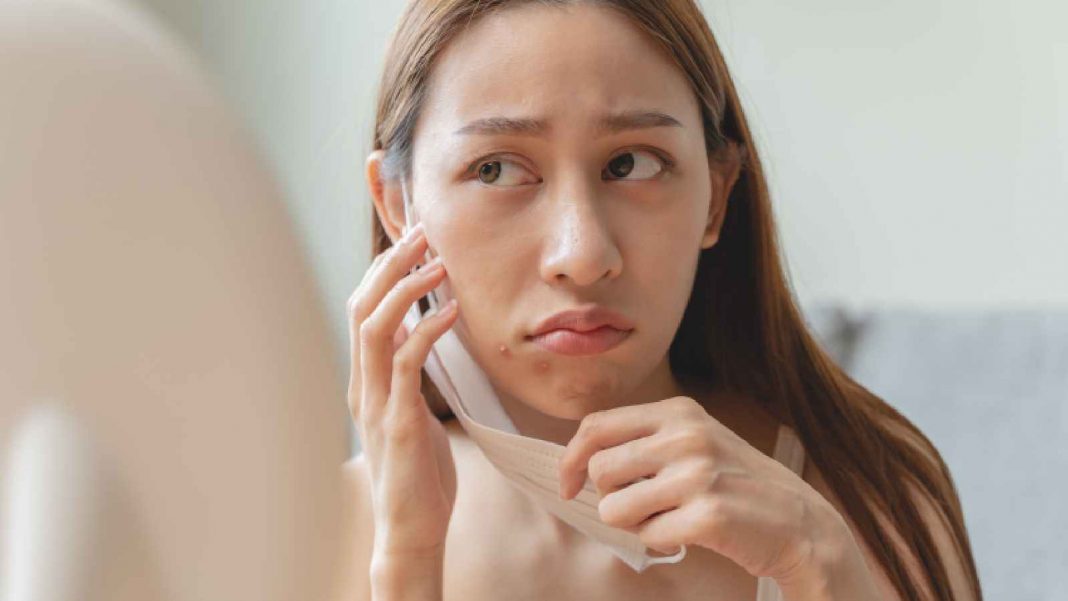Kissing may have benefits for your mental health and personal life, but some people have inherent fears about hygiene issues. Be it oral health or skin-related issues, people do wonder about some problems that may stem from kissing. One of these is whether kissing can cause acne!
According to experts, while kissing itself does not directly cause acne, certain indirect factors may play a role. Intimate contact with someone’s skin, especially if they have oily or acne-prone skin, could transfer bacteria or oils, potentially exacerbating skin issues. Moreover, excessive saliva exchange during prolonged kissing might lead to skin irritation in some cases.
Health Shots got in touch with Dr Monica Chahar, Chief Dermatologist and Director, Skin Decor, New Delhi, to know about the link between acne and kissing.
Dr Chahar says, “No, you don’t get acne after kissing your loved one. The simple reason behind this is that acne is not a contagious condition. But there could be situations where you notice your skin breakout after making out with that special someone. Don’t rush to conclusions, it could be a reaction to one of the products your partner wore such as lip balm.”
Let us learn more about what are the reasons behind skin breakouts after kissing and what you can do to prevent the condition.
Link between kissing and acne
Is my boyfriend giving me acne? Is my partner’s beard making my skin breakout after kissing? If these are the issues on your mind, read on! We accept that it is problematic to have acne, but acne does not spread through kisses. Acne primarily results from the clogging of hair follicles with oil, dead skin cells, and bacteria. While kissing itself typically doesn’t directly cause acne or breakouts, there are a few indirect ways in which kissing might contribute to breakouts:
1. Transfer of bacteria: Kissing can transfer bacteria from one person’s mouth to another’s, potentially introducing new strains to the skin. If the recipient’s skin is sensitive or prone to acne, this could trigger breakouts.
2. Irritation: Aggressive kissing or excessive lip pressure may irritate the skin around the mouth, potentially leading to redness and, in some cases, pimples.

3. Cosmetic products: Lip balms or lip products used before kissing may contain ingredients that could block pores or irritate the skin, leading to acne around the mouth.
Hence, the risk of developing acne from kissing is relatively low. Proper skincare and hygiene, including regular face wash and using the right skincare products, can help reduce the likelihood of breakouts regardless of your kissing habits.
Also read: How to kiss: Master the art of kissing with these tips
Causes of acne or breakouts
1. Stress: Stress is a major reason behind skin breakouts. When you are stressed, your body increases production of cortisol and sebaceous oil glands on the skin. When these are mixed with certain bacteria and dead skin cells, this buildup causes acne.
2. Poor diet: Along with stress, poor diet is also responsible for acne. Certain diets are responsible for inflammation leading to breakout. Likewise, diets high in oils, sugar, and dairy products have also been linked to increased acne.
3. Genetics: Besides, poor diet and stress, genetics also have a role to play in making you more prone to acne breakout compared to others. If your parents were more prone to acne, then there is a good chance that you will also happen to face more skin breakouts.
4. Poor skincare routine: Poor skincare habits, like not cleansing the face regularly, can allow dirt and dead skin cells to accumulate, further contributing to breakouts. Moreover, using harsh products, and over-exfoliating can also irritate the skin and lead to breakouts.

5. Environmental factors: Pollution, humidity, and exposure to harsh chemicals can clog pores and cause acne. It’s essential to protect your skin from environmental factors.
6. Hormonal Changes: Hormonal fluctuations, especially during puberty, menstruation, pregnancy, or menopause, can influence oil production and lead to acne.
Tips to avoid acne and breakouts
To maintain clear and healthy skin and avoid acne, follow these 8 tips:
- Cleanse your face twice daily with a gentle, non-comedogenic cleanser to remove dirt and excess oil.
- Drink plenty of water to keep your skin hydrated, which helps maintain its natural balance.
- Consume a diet rich in fruits, vegetables, and whole grains. Avoid excessive sugar and dairy intake, as they can trigger acne for some.
- Exfoliate 2-3 times a week to remove dead skin cells and prevent clogged pores.
- Always wear sunscreen to shield your skin from harmful UV rays, which can exacerbate acne scars.
- Stress can contribute to breakouts, so practice stress-reduction techniques like yoga or meditation.
- Avoid touching your face, as it can transfer bacteria and oils from your hands to your skin.
- Choose products labeled non-comedogenic and tailor your skincare routine to your skin type.
Incorporate these tips into your daily routine, and you’ll be on your way to clearer, healthier skin!







